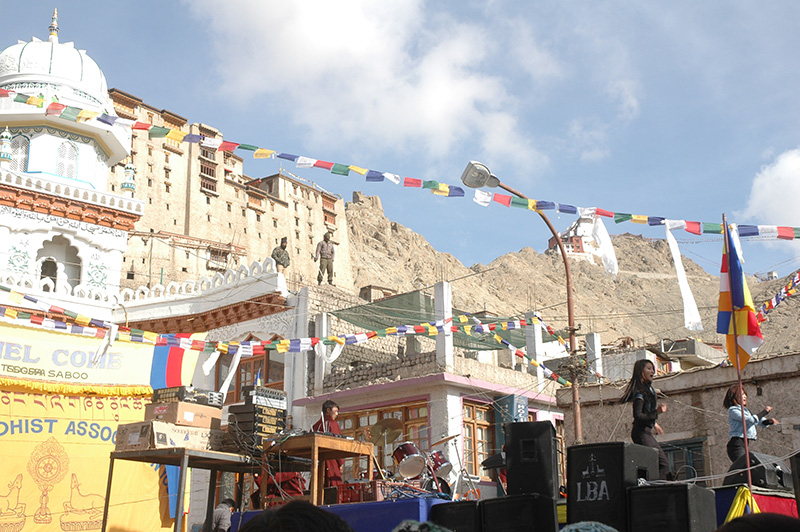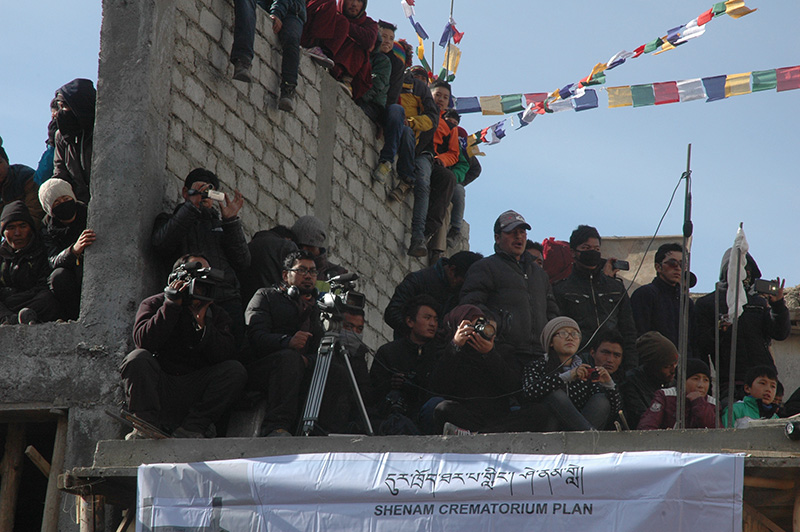Ladakh Arts and Media Organisation (LAMO)


Grant Period: Over one year and six months
The Ladakh Arts and Media Organisation (LAMO) based in Leh was established in 1996 to articulate an alternative vision for the arts and media in Ladakh. Located on the hill below the 17th century Leh palace, LAMO is housed in two historical structures that have been restored and converted into an arts space with galleries, offices, library and open-air performance site where lectures, film screenings, research and documentation projects, workshops and exhibitions about Ladakh’s material and visual culture, performing arts and literature are held regularly.
The old town of Leh has enormous significance in the history and current social life of Ladakh, explains Monisha Ahmed, Executive Director of LAMO. Located strategically along the Punjab – Tibet – China trade route, it emerged as a cosmopolitan centre assimilating within its social fabric Buddhist, Islamic and several other influences. Later, following a Dogra invasion in 1834, the old town lost its importance and the new town (which is quite distinct from the old town) began to grow rapidly overpowering the old town. Much of the old town today is only a memory of what it was with vacant spaces and crumbling edifices. However, music has lingered on despite political upheavals. Alongside traditional music, newer forms, like ghazal, pop, rock and roll and Bollywood music have become part of Ladakh’s cultural milieu. All these have remained undocumented. While the history of the old town is well documented in the form of traveller’s tales, local accounts and more recent academic work on the region, musical traditions have not received much attention. The All India Radio station in Leh had begun to archive the music of Ladakh, but unfortunately, a fire in 2002 destroyed the archive. Many of those who recorded with the AIR at that time are no longer alive. Hence, there is great urgency to work on this project, Monisha feels.
The grant will enable LAMO to undertake research and document the musical traditions of old town Leh from historical to contemporary times. This will be done through intensive documentation of the music alongside interviews with musicians as well as former and current residents of old town, over a 12-month period. Music performed during weddings, New Year celebrations, horse race festival, various agricultural seasons, Buddhist and other festivals will be thoroughly documented. LAMO will also relook at existing footage and source material from there. They also plan to organise a few musical performances. This project, besides being a documentation of the music, will also enable an understanding of the history of the old town as embedded in its music. The four-member filmmaking crew will be led by Tashi Morup, a senior staff with LAMO. Ladakh’s celebrated folk singer Morup Namgyal will be the advisor for the film.
This grant was made possible with support from the Bajaj Group.
